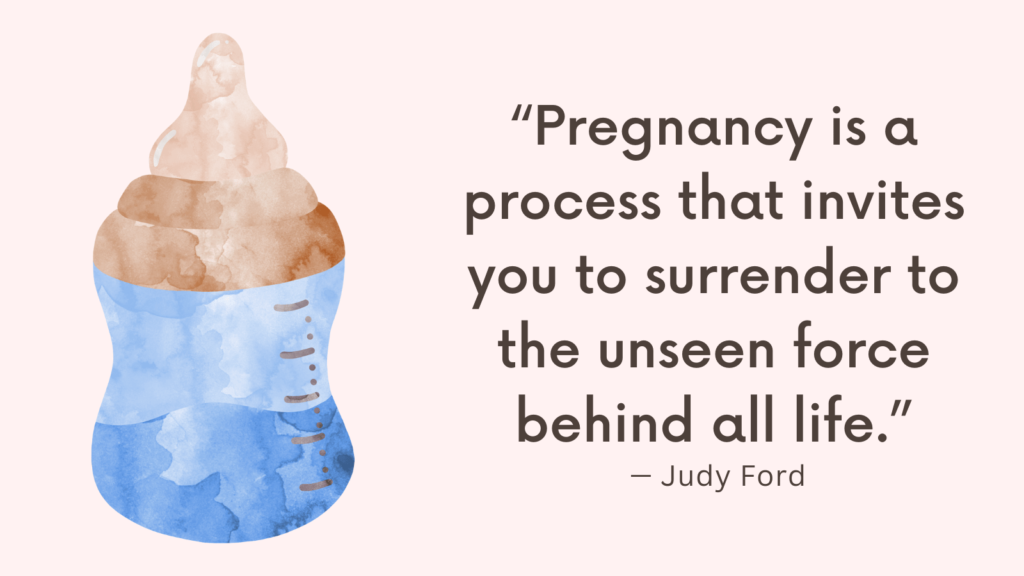Varicose veins may appear, increased appetite, and baby swallowing amniotic fluid.
You’re 21 weeks pregnant! You’re now past the halfway point, and your baby is growing rapidly, moving more, and becoming stronger! You might start feeling more frequent baby kicks, and your belly is expanding.
Let’s explore your baby’s growth, changes in your body, and how to manage symptoms at 21 weeks pregnant.
What’s Happening to Your Baby?
At 21 weeks, your baby is about the size of a carrot (18-21 cm or 7-8 inches long, head to toe) and weighs around 360 grams (12.7 oz). Your little one is becoming stronger, more coordinated, and practicing important skills for life outside the womb.
Major Developments This Week:
Movements Are Getting Stronger! – Baby is kicking, stretching, and even doing somersaults.
Taste Buds Are Developing! – Your baby can taste the flavors of what you eat through the amniotic fluid.
Eyelids & Eyebrows Are Forming! – The eyelids are still fused shut, but the eyebrows are now visible.
Baby’s Digestive System Is Practicing! – Your baby swallows amniotic fluid, helping the intestines develop.
Brain & Nerve Connections Are Strengthening! – Baby is learning to process touch, sound, and movement.
Skin Is Becoming Less Transparent! – As fat continues to develop, baby’s skin is getting thicker.
What’s Happening to Your Body?
At 21 weeks pregnant, your belly is expanding, your baby is moving more, and your body is working hard to support growth.
Common Symptoms at 21 Weeks Pregnant:
Feeling More Baby Kicks! – Movements are stronger and more frequent.
Growing Baby Bump! – Your uterus is now above your belly button.
Round Ligament Pain – Stretching or pulling pain in the lower belly as your uterus grows.
Back Pain – Your growing belly is affecting posture, leading to lower back pain.
Leg Cramps – Muscle cramps in the legs may occur, especially at night.
Heartburn & Indigestion – Hormonal changes relax the digestive system, causing discomfort.
Shortness of Breath – Your growing uterus is pressing on your lungs.
Increased Appetite – You may feel hungrier as baby needs more nutrients.
Swelling in Feet & Ankles (Edema) – Mild swelling due to increased fluid retention.
More Visible Veins – Blood circulation is increasing, making veins more noticeable.
How to Cope with Week 21 Pregnancy Symptoms
1. Feeling Baby Kicks & Movement
Movements may feel like flutters, kicks, or gentle nudges.
Pay attention to when baby is most active (usually after eating or at night).
If you don’t feel movements yet, don’t worry! Some women feel them closer to 22-24 weeks.
2. Managing Round Ligament Pain
Stretch gently or try prenatal yoga to relieve tension.
Change positions slowly to avoid sudden discomfort.
Use a belly band for extra support if needed.
3. Easing Back Pain
Maintain good posture and avoid slouching.
Use a pregnancy pillow for support while sleeping.
Do gentle stretches or prenatal yoga to ease back pain.
4. Preventing Leg Cramps
Stretch your legs before bed to reduce cramping.
Eat calcium and magnesium-rich foods like dairy, bananas, and nuts.
Massage your legs or apply heat if cramps occur.
5. Reducing Heartburn & Indigestion
Eat small, frequent meals instead of large ones.
Avoid spicy, greasy, and acidic foods that trigger heartburn.
Don’t lie down right after eating – wait at least 1-2 hours.
6. Coping with Shortness of Breath
Sit and stand up straight to give your lungs more space.
Take deep breaths and slow down when needed.
Sleep with extra pillows to elevate your upper body.
7. Managing Swelling in Feet & Ankles
Elevate your feet when sitting or lying down.
Wear comfortable shoes and avoid tight socks.
Drink plenty of water to reduce water retention.
What Should You Be Doing in Week 21?
Now that you’re in the second half of pregnancy, here’s what to focus on this week:
1. Attend Your 20-Week Anatomy Scan (If You Haven’t Yet!)
This detailed ultrasound checks baby’s organs, spine, heart, brain, and more.
If you want to find out the gender, this is your chance! ����
2. Keep Taking Your Prenatal Vitamins
Ensure your vitamin contains 400-800 mcg folic acid for brain and spinal cord development.
A vitamin with DHA & Omega-3s supports baby’s brain growth.
3. Eat a Healthy Pregnancy Diet
Include protein-rich foods like eggs, chicken, and tofu.
Eat calcium-rich foods like yogurt, milk, and cheese.
Stay hydrated – Drink at least 8 glasses of water daily.
4. Track Your Baby’s Movements
Start noticing baby’s movement patterns throughout the day.
Baby’s kicks will become stronger and more predictable in the coming weeks.
5. Research Childbirth & Parenting Classes
Consider signing up for prenatal classes about labor, delivery, and newborn care.
Some hospitals offer virtual or in-person classes.
6. Plan for Maternity Leave
Look into your workplace’s maternity leave policies and benefits.
If you plan to return to work after birth, start thinking about childcare options.
Final Thoughts
You’re 21 weeks pregnant, and your baby is growing bigger, stronger, and more active! This is an exciting time, especially as you feel more movement and prepare for your anatomy scan.
Your baby is developing tiny features, reacting to sound, and preparing for big growth ahead. Symptoms like bloating, back pain, and dizziness may still happen, but you’re doing an amazing job!


